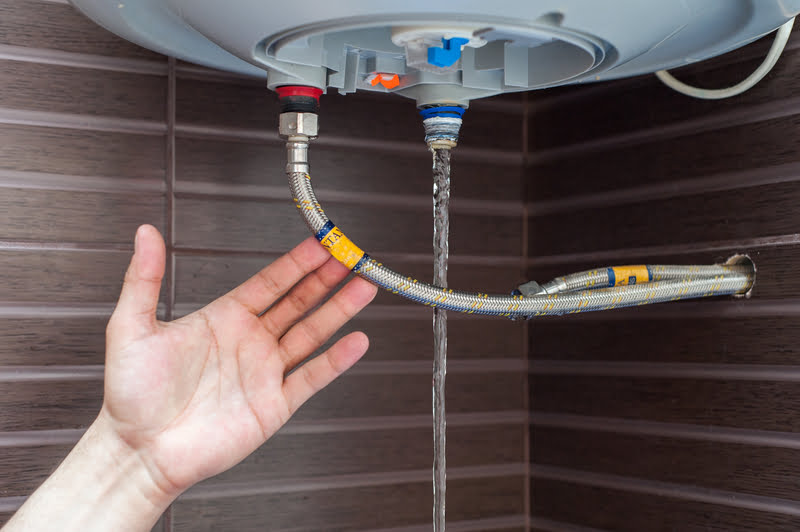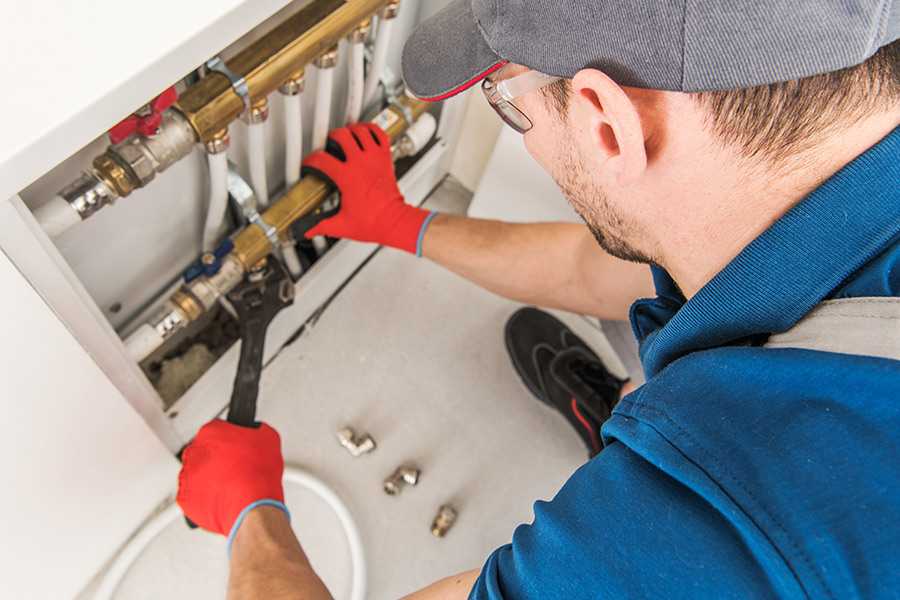Dealing with the Chief Water Heater Crisis Events
Dealing with the Chief Water Heater Crisis Events
Blog Article
Just about every person will have their own opinion with regards to Is Your Water Heater Leaking?.

A hot water heater is one of one of the most essential fundamental home appliances that can be located in a home. With water heaters, you don't require to experience the tension of home heating water by hand every time there is a requirement to take a bath, do the laundry, or the meals. Nonetheless, there is constantly an opportunity that your hot water heater would certainly break down similar to the majority of mechanical devices.
It is very important to note any little malfunction and also tackle it swiftly before things leave hand. A lot of times, your water heater begins to malfunction when there is an accumulation of sediments as a result of continual use. As a safety measure, routine flushing of your hot water heater is recommended to stop debris accumulation and prevent useful failing.
Usual water heater emergency situations and also exactly how to manage them
Inadequate hot water
It might be that the water heating unit can't sustain the hot water demand for your home. You might update your water heating unit to one with a larger capability.
Changing water temperature.
Your hot water heater could start generating water of different temperature levels typically ice scalding or cool hot. In this situation, the first thing you do is to guarantee that the temperature is set to the wanted level. If after doing this, the water temperature maintains changing during showers or other activities, you might have a faulty thermostat. There could be a demand to change either the home heating or the thermostat system of your water heater.
Leaky water heater container.
A leaking tank could be a sign of deterioration. It might cause damages to the floor, wall surface as well as electrical tools around it. You might also be at threat of having your apartment or condo flooded. In this scenario, you ought to switch off your water heater, permit it to cool down, and also thoroughly look for the resource of the issue. Sometimes, all you need to do is to tighten up a couple of screws or pipe links in cases of minor leaks. If this doesn't function and the leak continues, you may need to utilize the services of a service technician for an ideal replacement.
Tarnished or smelly water
When this happens, you need to know if the issue is from the water or the tank resource. If there is no amusing odor when you run cold water, then you are specific that it is your hot water heater that is malfunctioning. The odiferous water can be brought on by corrosion or the buildup of microorganisms or debris in the hot water heater container. You can try flushing out your container or changing the anode if the issue persists as soon as you see this. The function of the anode is to clean out microorganisms from your storage tank. Because the anode pole substitute requires a comprehensive expertise of your water heater, you will need the assistance of a professional.
Final thought
Some property owners disregard little caution as well as minor faults in their water heater device. This just results in further damages and a possible total breakdown of your appliance. You need to take care of your water heater faults as quickly as they come up to stay clear of more costs and also unnecessary emergency problems.
With water heaters, you do not require to go through the anxiety of home heating water manually every time there is a requirement to take a bathroom, do the washing, or the dishes. It may be that the water heating unit can not sustain the warm water need for your house. Your water heating unit can begin generating water of different temperatures typically ice cold or scalding hot. If there is no funny smell when you run cold water, then you are particular that it is your water heating unit that is malfunctioning. The smelly water can be created by corrosion or the buildup of microorganisms or sediments in the water heating system storage tank.
Water Heater Burst: Why This Happens And What To Do Next
Water Heater Explosion Warning Signs
Since storage water heaters are made of metal and store large volumes of heated water, they carry an increased risk of leaking or even exploding as they begin to rust at the fittings and seams over time. If the thermostat controlling the water temperature within the tank is faulty, or if mineral buildup inside the water heater prevents the thermostat from sensing the water’s temperature correctly, the water could become overheated. This will expand its volume within the tank, causing it to press at the tank’s fittings and seams. If these fittings and seams are rusted or corroded, the pressure could result in a leak or even an explosion.
Here are some risk factors and warning signs of an increased risk of water heater leak or explosion:
Your water heater is more than 10 years old. Your water heater makes clanking, banging or rumbling noises as it heats up, indicating that sediment has built up and hardened inside the tank. There is visible rust on the outside of the water heater, especially located at the pipe fittings or the seams that run down the tank. There is rusty water coming from your water heater, indicating that there may be rust building up inside. Your water heater is leaking, which could indicate either a crack somewhere in the tank or a malfunctioning temperature-and-pressure (T&P) relief valve. What To Do When Water Heater Leaks
If you find water dripping or seeping out of your water heater, or pooling around it, it means your water heater is leaking. If you find a leak, it may be best to call a plumbing professional to diagnose the problem and determine how best to handle it. If you choose to tackle it on your own, there are a few things you can do.
TURN OFF THE POWER
Next, shut off the power to the hot water tank at your home’s electrical breaker box. If you don’t shut off the power, the heating elements within the tank could continue to stay hot, which could pose a fire risk.
If you have a gas-powered water heater, you’ll also need to shut off the gas line leading into the tank.
FIND THE LEAK
Now it’s time to determine where the leak is coming from. Likely locations are the T&P valve, the drain valve or one of the pipes or fittings that feed into the top of the tank. If you see any rust or corrosion on the outside of your water heater’s tank, pipes or fittings, these could also be the source of the leak.
REPAIR THE LEAK
Once you determine the source of your water heater leak, you’ll have a better idea of what steps you need to take to fix the problem. It may be a simple fix—such as using a wrench to tighten fittings or replacing the T&P valve—but it may be something more complicated. You may even need to drain the tank, remove the water heater and install a new one.
https://www.abchomeandcommercial.com/blog/water-heater-burst/

Do you appreciate more info about Common Hot Water Heater Problems? Put feedback below. We would be delighted to find out your insights about this entry. In hopes to see you back again before long. Loved our post? Please share it. Let another person discover it. Thanks a lot for taking the time to read it.
Suggested Site Report this page